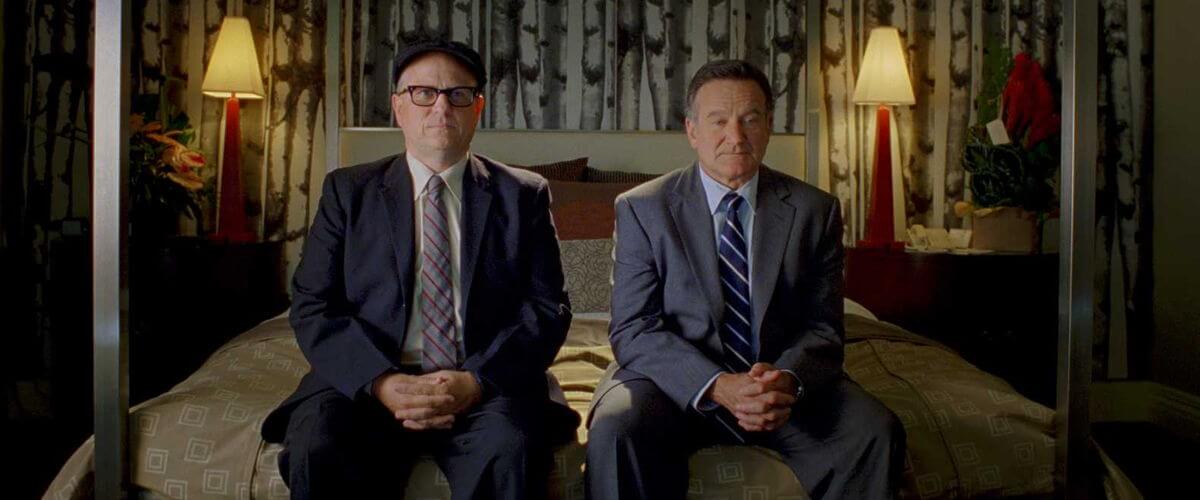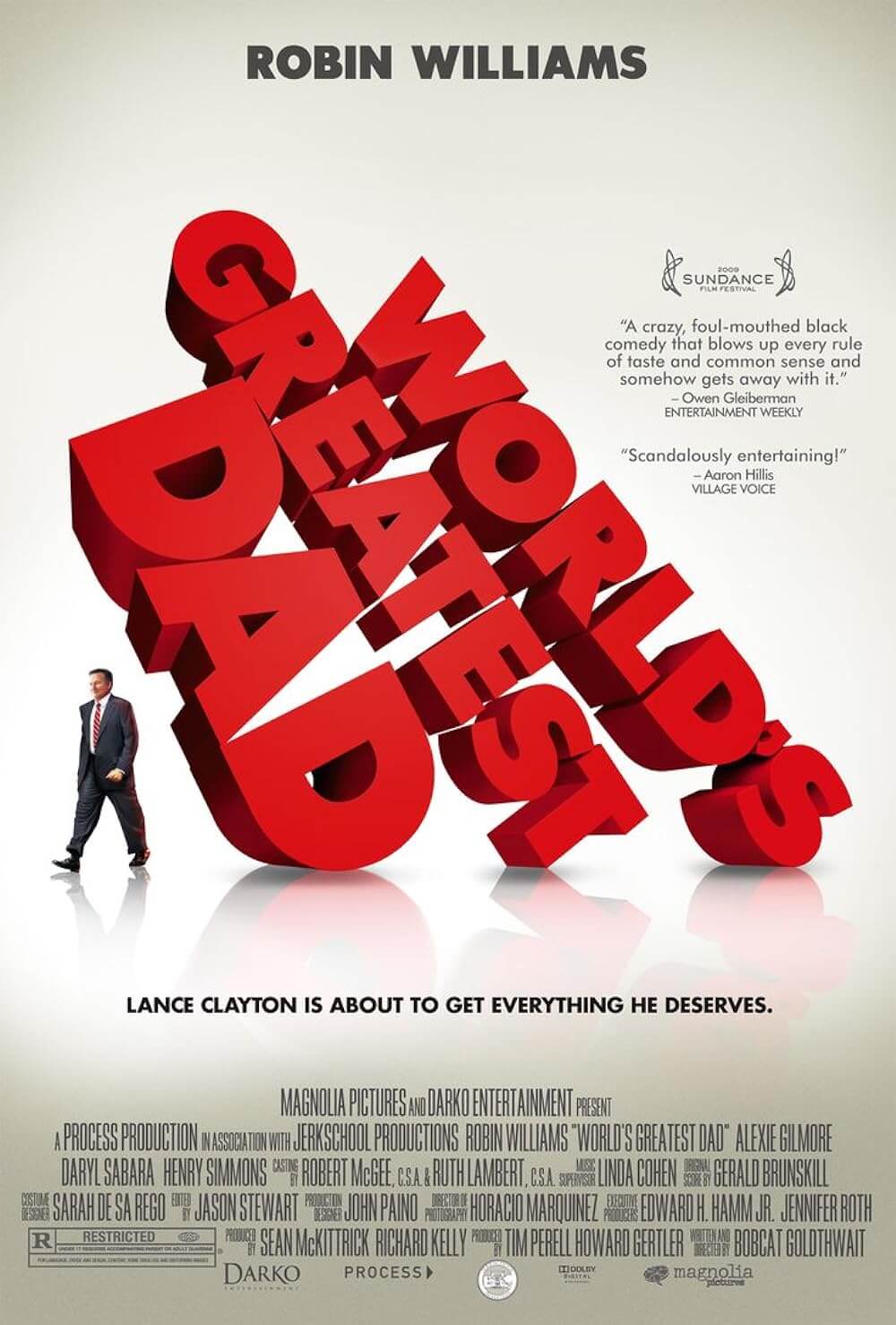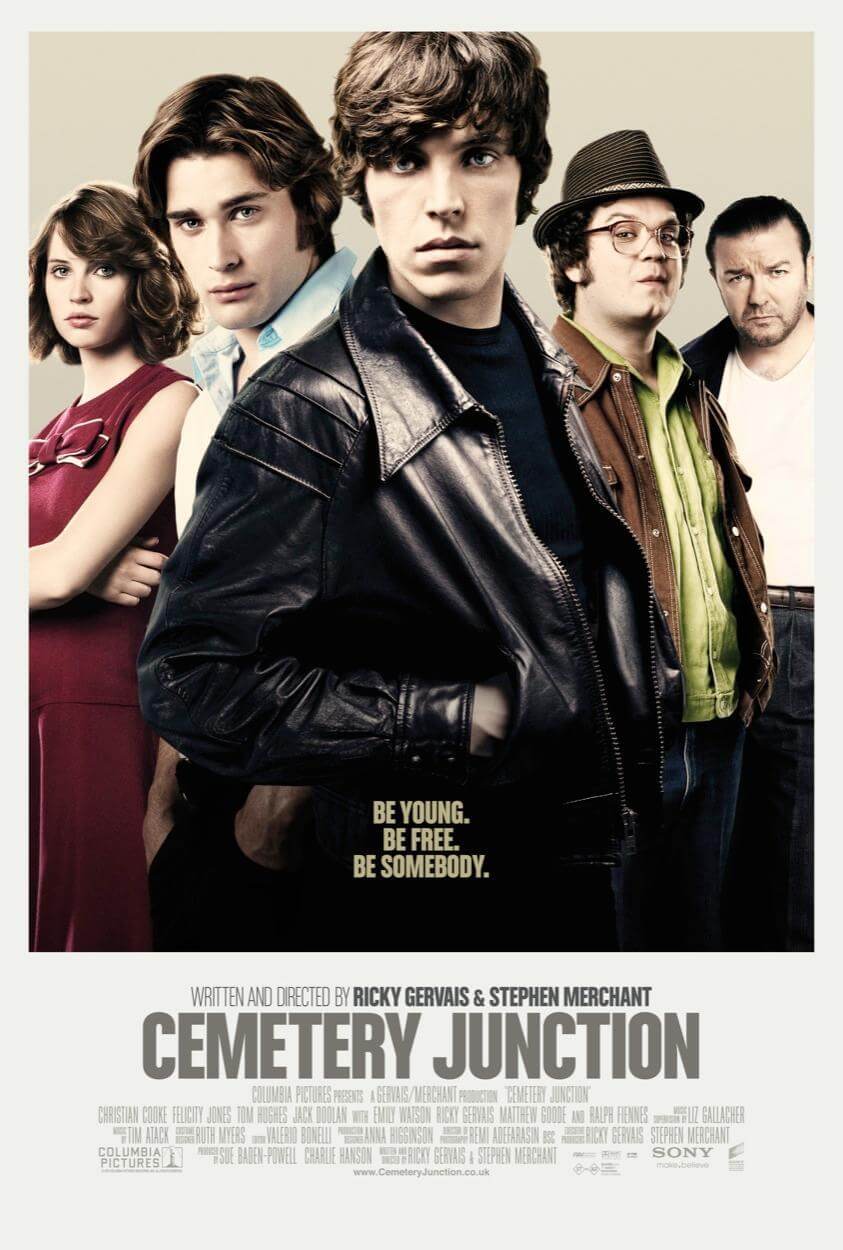
World’s Greatest Dad
By Brian Eggert |
When you see comedian Bobcat Goldthwait’s name as the writer and director of World’s Greatest Dad, hopefully, that recalls the humanity his movies sometimes achieve through extremely graphic, raunchy, coarse situations. If it just brings to mind grotesqueries from Shakes the Clown or Sleeping Dogs Lie, Goldthwait’s previous efforts, or even induces unsettling flashbacks to the Police Academy movies, there’s no convincing you of the merits of his latest. It takes a particular kind of mind to appreciate a Bobcat Goldthwait movie, one that’s a little dark and depraved to begin with, but one also willing to explore their own comfort zone.
Goldthwait called on longtime friend Robin Williams to star in this independent release, which was something of a hit at the Sundance Film Festival and contains those indie-movie flourishes like simple camerawork and largely folksy music. Williams stars as a failed writer and disregarded high school poetry teacher, Lance Clayton, a lonesome single parent whose recluse teenage son Kyle (Daryl Sabara) wants nothing more than to watch internet porn and masturbate. Everything is “gay” to Kyle, whose crude mouth gets him into trouble at school; he has almost no interests, and he’s not very bright. Lance doesn’t really like his son, but it’s his son, so he loves him and tries to be a good parent no matter what.
Unexpectedly, Lance’s son dies in such a way that, without giving too much away, might seem familiar to our post-David Carradine world. Lance, having never published any of his own writing, despite submitting several books and magazine articles to various agents over the years, takes it upon himself to write a suicide note for Kyle, making his son’s embarrassing accidental death look intentional and meaningful. The school suddenly takes notice of the late Kyle’s talent, believing that the kid to which they never paid any attention harbored some secret genius. Lance sees another opportunity to write and unveils Kyle’s hidden journal; he publishes it as a small tome of observations and inner feelings, all mostly his own but fronted as his son’s. Meanwhile, the school and beyond go wild for Kyle, remembering him as a quiet saint instead of the angry pervert he was.
Goldthwait’s script contains some revealing truths about how people behave after a death, how everything terrible about the dead person is illogically washed away. Everyone in Lance’s school projects themselves onto Kyle: his jock enemies now say they were friends with him; girls suddenly always harbored secret fascinations with him, and everyone wants a piece of Kyle. Lance is the worst, making Kyle into a thinly veiled version of himself. Two girls fight over a Bruce Hornsby CD because Lance has told them it was Kyle’s favorite; in reality, it’s taken from Lance’s own collection. Consider the public’s reaction to Michael Jackson’s death, and the film’s observations become blatantly true. We always put the dead on a pedestal, forgiving their lesser qualities in favor of what we would’ve liked them to be, which ultimately is pure fantasy when compared to the ugly truth.
Mostly the film is a showcase for Williams, who manages to show his sensitive and comedic sides in one shot. It’s often just one or the other in movies like Good Will Hunting contrasted by Death to Smoochy, but like The Fisher King, here Williams is unleashed onto an introverted character who is set free by the death of someone close to him. It’s a cruel, sick joke on the part of Goldthwait, but also a hilarious one, and surprisingly affecting. Even amid references to “Autoerotic Asphyxiation” and “German Shyster Porn,” World’s Greatest Dad is more tender and heartfelt because of Williams’ performance. And when it’s all over, no matter how obscure the plot or demented the scenario, Goldthwait has constructed a welcomed little indie comedy of the unlikeliest kind.

Thank You for Supporting Independent Film Criticism
If the work on DFR has added something meaningful to your love of movies, please consider supporting it.
Here are a few ways to show your support: make a one-time donation, join DFR’s Patreon for access to exclusive writing, or show your support in other ways.
Your contribution helps keep this site running independently. However you choose to support the site, please know that it’s appreciated.
Thank you for reading, and for making this work possible.
Brian Eggert | Critic, Founder
Deep Focus Review







